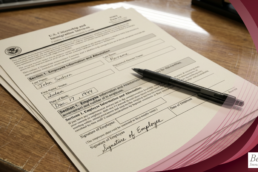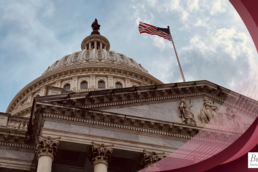U.S. Citizenship and Immigration Services has recently finalized new H-1B visa updates, introducing several key changes to the eligibility criteria for the main visa program that allows skilled foreign workers to work in the United States.
The new regulations reinstate the “prior deference” policy for H-1B extensions which was previously dropped by the first Trump administration. This reinstatement will speed up the H-1B renewal process by honoring previous approvals and will largely affect the hiring processes of technology and information firms that rely on the H-1B process to gain foreign employment. In a recent statement, Homeland Security Alejandro Mayorkas said “American businesses rely on the H-1B visa program for the recruitment of highly-skilled talent, benefiting communities across the country…These improvements to the program provide employers with greater flexibility to hire global talent, boost our economic competitiveness, and allow highly skilled workers to continue to advance American innovation.”
Although the odds of winning the H-1B visa lottery are statistically low, this lottery still remains the most straightforward pathway for international graduates or foreign professionals with at least a bachelor’s degree to pursue a career in the United States. Nonetheless, USCIS’ recent change in regulations did not alter the H-1B’s statutory cap of 85,000 new visas each year– including 20,000 spots reserved for advanced degree holders.
The new regulations bring some important updates to the definition of a “specialty occupation,” now requiring that an applicant’s degree field is directly related to their job duties. While this initially raised concerns among immigration attorneys about potential hiring restrictions, the rules offer a practical approach. Start-ups and companies in emerging fields only need to demonstrate a logical connection between an applicant’s degree and their role—an “exact match” isn’t necessary. Legal experts are keeping a close eye on how these changes will be applied in real-world cases, with many wondering how adjudicators will interpret the new guidelines. On a positive note, the regulations also introduce much-needed protections for international students, including automatic extensions of visa status to prevent gaps in their lawful stay in the U.S. These updates aim to balance flexibility for employers with safeguards for individuals navigating the visa process.
The new regulations bring much-needed flexibility to cap-exempt H-1B visas, particularly benefiting nonprofit and government research organizations. Previously, these organizations had to prove that research was their primary mission. With the updated rules, research now only needs to be a “fundamental activity” within the organization. This change is expected to boost hiring for employers who would otherwise be caught in the traditional H-1B visa lottery process. In addition, the regulations now offer clarity for entrepreneurs. Entrepreneurs who hold a controlling interest in a company may be eligible for H-1B status in certain circumstances, providing greater opportunities for business owners and innovators to secure the talent they need.
To wrap things up, the updated regulations give USCIS officials clear authority to carry out worksite visits, ensuring businesses comply with visa requirements. Under these rules, employers who refuse to cooperate with site inspections could face serious consequences, like having future applications denied or existing visa petitions revoked. These changes are designed to enhance the H-1B visa program’s efficiency while aligning it with the demands of the U.S. labor market and economy.
Conclusion
The H-1B visa updates bring significant improvements to streamline processes, offer flexibility, and provide safeguards for both employers and foreign workers. From reinstating the “prior deference” policy to expanding opportunities for entrepreneurs and enhancing protections for international students, these changes aim to balance the needs of the U.S. labor market with the aspirations of global talent.
For expert guidance on navigating the complexities of the H-1B visa process and ensuring compliance with the latest regulations, contact Berardi Immigration Law today. Our experienced team is here to help you achieve your immigration goals efficiently and effectively.
Disclosure: This document is for informational purposes only and does not constitute legal advice. Immigration laws and regulations are subject to change, and individual cases may vary. For personalized guidance and assistance with your immigration needs, consult a qualified immigration attorney.
Ready to have Berardi on your side?
Whether you’re a business looking to hire or a professional hoping to relocate, immigration law can be complicated. But you don’t have to do it alone. Put our experience to work for you.



